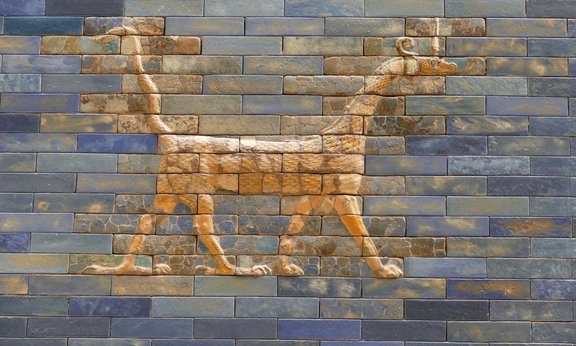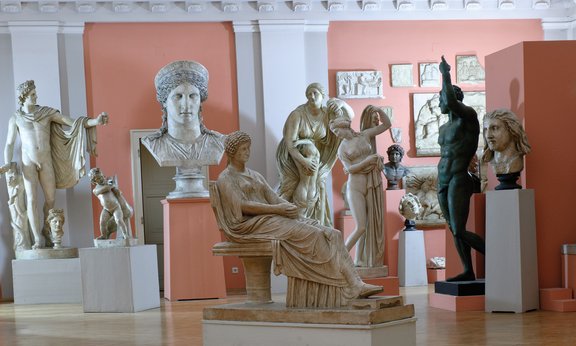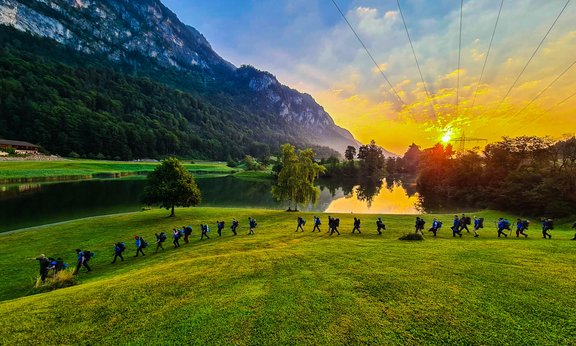Master’s Programme German Philology
Would you like to acquire specialised knowledge and develop research approaches to language and literature and a critical awareness?
The students of this Masters’s degree programme acquire in-depth theoretical and methodological knowledge in the field of German philology and may focus on specific areas in this field of study. They are able to develop and follow innovative theoretical concepts and research approaches by applying their comprehensive specialised knowledge.
Please note: the language of instruction for this programme is German.
Study Code
UC 066 817
FAQ
Graduates possess highly specialised knowledge in the fields of German linguistics and literary studies. They are able to apply their competences in linguistics/applied linguistics, medieval studies or literary studies/mediation by independently formulate and substantiate scientific arguments and to find innovative solutions to problems as well as to communicate beyond the subject boundaries.
The Master’s Programme in German Philology aims at the scientific examination of the German language and literature, its development and its functions in the present and history as well as the cultural, social and anthropological-symbolic processes in which they are embedded. Language and literature are seen as comprehensive cultural phenomena that recognise, understand and help to shape our living environment and promote the reflection of social and cultural processes also with regard to future development. Special attention is given to gender aspects in our culture that shape language and literature.
That is why in addition to thorough knowledge of historic, systematic and pragmatic aspects of language and literature and insights into the practice of literary teaching, also knowledge of media, its structures, mechanisms of action and shaping possibilities are given a lot of space. Studying the fundamentals and characteristics or oral and written communication and the developing of a high level or oral and written language competence are other major objectives of the Master’s Programme in German Philology. The comprehensive understanding of the subject corresponds to a large variety of theories. The Master’s Programme in German Studies is science-orientated.
Graduates of the Master’s Programme in German Philology can apply their expertise in their field of work or study as well as knowledge from other disciplines for the strategic orientation and management of complex projects, operational areas or companies. Depending on the focus of their studies, they are qualified for the following occupational fields:
- media: print media, radio, TV, new media etc.
- book trade and librarianship
- publishing: school book publishing houses, literary publishing houses etc.
- cultural administration and education: houses of literature, cultural authorities, theatres, museums etc.
- adult education: communication advice, writing centres, courses for German as Foreign/Second Language etc.
- international culture and education exchange: e.g. within the scope of a lectorship or educational counselling
- public relations: companies, public administration, cultural institutions etc.
- research: university, literary archives, language documentation, edition projects etc.
- The Master’s Programme in German Philology is science-orientated and the basis for a Doctoral Programme.
Graduates tracking: Shows which occupational fields students enter after graduation
Doctoral Programmes
More offers
Faculty of Language, Literature and Culture Department of German Studies Examination Office Information for students with disabilities
Curriculum
From the field
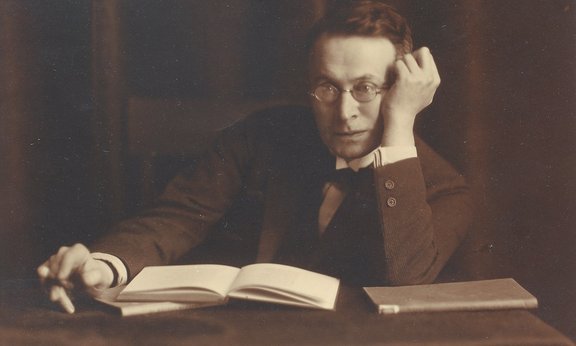
Uni Innsbruck feiert Karl Kraus
Zum 150. Geburtstag von Karl Kraus (1874–1936) erinnert das Forschungsinstitut Brenner-Archiv der Universität Innsbruck mit einem bunten Veranstaltungsreigen an den österreichischen Schriftsteller und „Fackel“-Herausgeber. Mit der Sammlung Friedrich Pfäfflin verfügt das universitäre Literaturarchiv über eine umfang- und raritätenreiche Sammlung zu Karl Kraus.
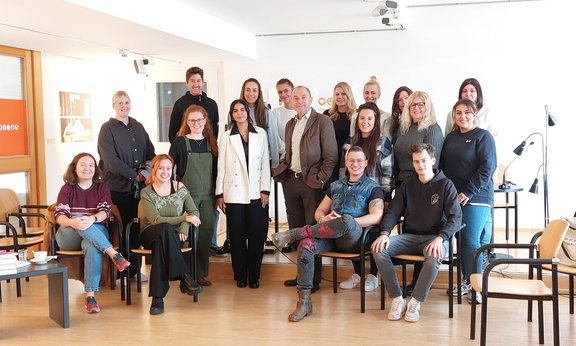
Tiefenbohrungen: Zu Norbert Gstreins Poetik
Mitte November war der aus Tirol gebürtige Autor Norbert Gstrein zu Gast im Forschungsinstitut Brenner-Archiv und im Literaturhaus am Inn. Eine internationale Tagung widmete sich verschiedenen Themen und Aspekten in Gstreins Oeuvre. Studierende erhielten die einzigartige Gelegenheit, mit dem Autor und den Referent:innen ausführlich ins Gespräch zu kommen und schildern ihre Eindrücke.
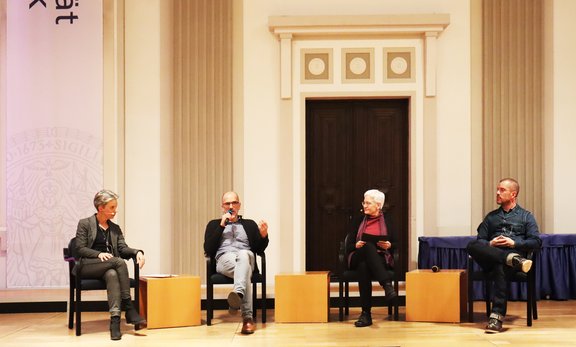
„Alles Theater!? Wozu brauchen wir Inszenierungen?“
Theatralität, Inszenierung und Performativität sind wesentliche Merkmale von Theateraufführungen. Sie sind aber auch zentral in anderen Genres wie beispielsweise in der politischen Kommunikation, der Werbung, der Wissenschaft, der Selbstdarstellung in Sozialen Medien, der Inszenierung in Sportereignissen oder in den Leitbildern von Unternehmen.
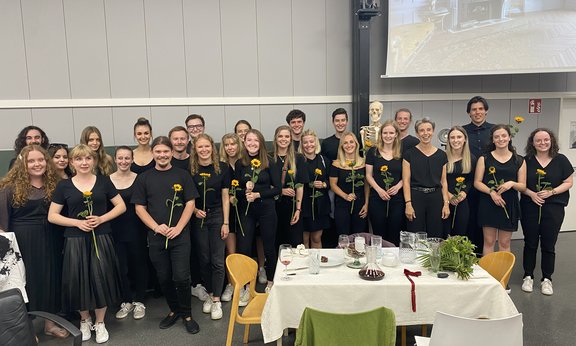
Verrücktes und Geistvolles im Hörsaal 4
Studierende des Unterrichtsfaches Deutsch führten in einer szenischen Lesung „Ritter, Dene, Voss“ von Thomas Bernhard auf. Das Stück handelt von drei Geschwistern, die in enger psychischer und existenzieller Verklammerung leben. Die Studierenden übernahmen sämtliche Aufgaben von Catering, Marketing und Kostümgestaltung bis hin zu den Hauptrollen.
Related studies

English and American Studies (Master)
Master of Arts

Educational Sciences (Master)
Master of Arts

Romance Studies (Master)
Master of Arts



